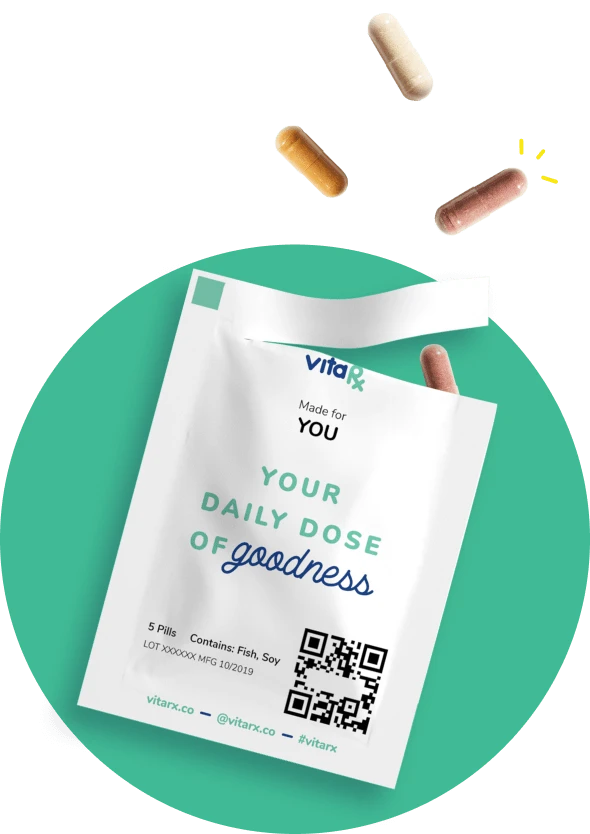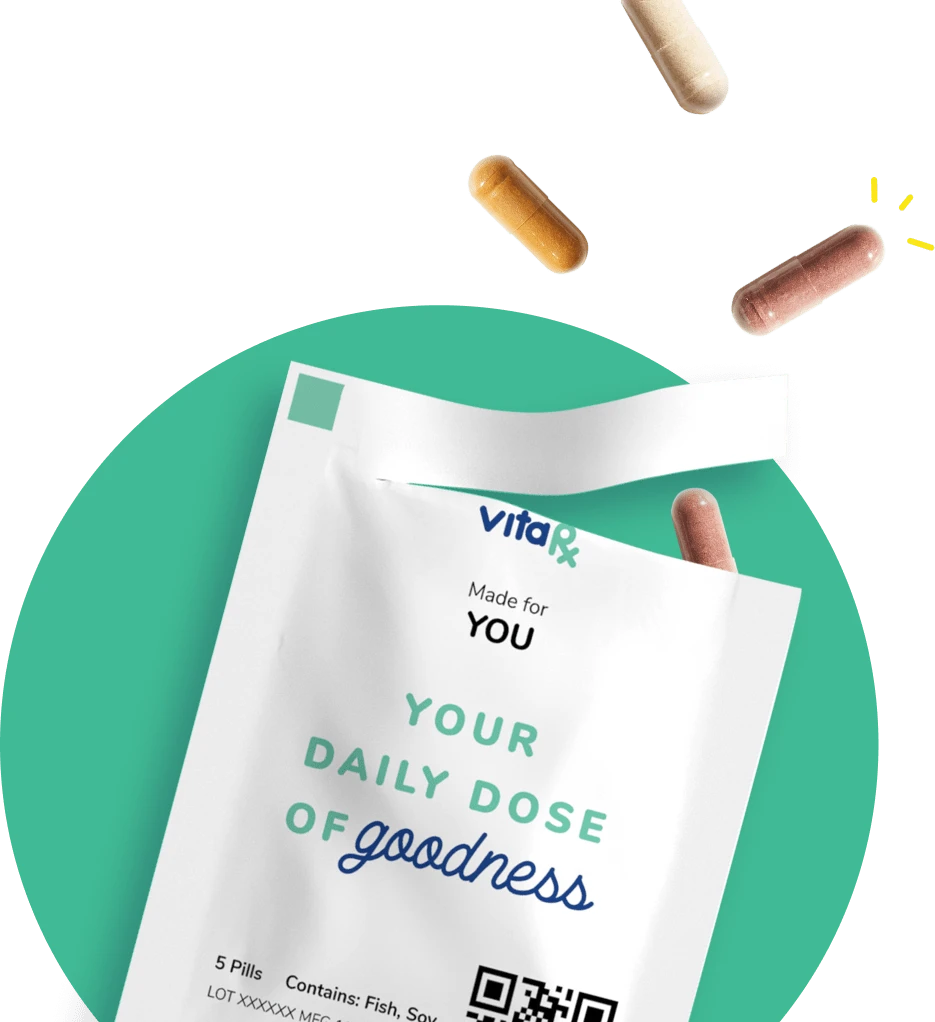Last update: December 26, 2024
Iron: The Complete Guide
Unlock the vital secrets of iron, an essential mineral for your health. Find out who benefits from supplementation, learn about recommended dosages and consumption methods, and discover the advantages of keeping iron levels balanced.

By Stephanie Wright, RN, BSN
Edited by Dr. Dimitar Marinov, MD, RDN, PhD

Key takeaways
- Iron is a crucial mineral for the production of hemoglobin in red blood cells, for oxygen transport, for maintaining energy levels, and for supporting many other functions.
- The human body cannot produce iron on its own. Iron must be obtained from the food or through supplementation
- Iron is especially vital for pregnant women, menstruating women, infants, athletes, and those with plant-based diets
- Take iron on an empty stomach for better absorption
What is iron?
Iron is a mineral necessary for many functions in your body. Most notably, iron is essential for producing hemoglobin, a protein in red blood cells that carries oxygen throughout the body. Iron also affects muscle function, hormonal synthesis, and neurological development [1].
Without iron, your body can't produce and transport enough healthy red blood cells, potentially leading to iron deficiency. This may lead to feelings of fatigue, weakness, and difficulty concentrating. It's also a part of myoglobin in muscles, helping to store and release oxygen as needed [2].
Can your body produce iron?
No, the human body cannot produce iron on its own. Instead, iron must be obtained from your foods or through supplementation. This makes it essential to include iron-rich foods in your diet or consider supplements, especially for individuals at risk of iron deficiency [2].
Long-standing history of use
Iron supplements have significantly evolved. They have been in use since at least 1681. What began as simple formulations has transformed into today's sophisticated options, including ferrous sulfate and carbonyl iron.
Different types of iron
Iron in food comes in two forms: heme and non-heme iron. Both are important for maintaining good health, but they differ in their sources and how the body absorbs them [9].
- Heme Iron
Heme iron is found primarily in animal products and is named for its presence in hemoglobin, the protein in red blood cells that carries oxygen. It is highly bioavailable, meaning your body absorbs it more efficiently than non-heme iron. Typically, the body absorbs about 15-35% of heme iron. Major sources of heme iron include red meats (like beef and lamb), poultry, and seafood. For instance, beef liver and oysters are rich in heme iron. - Non-heme Iron
Non-heme iron, on the other hand, is found in plant-based foods. This type of iron is not absorbed as efficiently as heme iron; only about 2-20% of non-heme iron gets absorbed by the body. However, its absorption can be enhanced when consumed with vitamin C-rich foods or certain animal proteins. Sources of non-heme iron include legumes (like lentils and beans), nuts, seeds, whole grains, and green leafy vegetables like spinach.
How does iron work in your body?
What are some benefits of iron?
Iron is essential for maintaining good health. Here are a few benefits of maintaining sufficient Iron in your diet.
Supports oxygen transportation
Iron in hemoglobin is essential for transporting oxygen from the lungs to tissues, ensuring body parts receive the oxygen needed for effective functioning. It also carries the carbon dioxide from the tissues to the lungs for exhalation [4].
Enhances energy levels
Iron plays a critical role in energy metabolism, helping reduce fatigue and boost energy production, enhancing overall vitality and productivity [5].
Boosts athletic performance
Especially beneficial for athletes, iron improves exercise performance by ensuring efficient oxygen delivery to muscles, which is critical for optimal physical performance and strength [6].
Aids during pregnancy
Iron is crucial during pregnancy, increasing the health of both the mother and the developing fetus and helping prevent premature births and low birth weights [7].
What are some signs of iron deficiency?
Iron deficiency can manifest in many ways, often varying in severity and impact on health. Some of the most common signs and symptoms of iron deficiency include [8]:
- Fatigue: Feeling unusually tired is common.
- Weakness: General weakness or a decrease in physical strength.
- Pale Skin: Iron deficiency can lead to paleness due to reduced hemoglobin.
- Shortness of Breath: Difficulty breathing or shortness of breath, especially during exercise.
- Dizziness: Experiencing light-headedness or dizziness.
- Cold Hands and Feet: A symptom indicating poor blood circulation.
- Brittle Nails: Nails may become weak, brittle, or spoon-shaped.
- Headaches: Frequent headaches or migraines can be a sign.
- Irregular Heartbeat: In severe cases, it may lead to heart palpitations.
Never self-diagnose
If you feel you may have a deficiency or are concerned or curious about taking this supplement, talk to a doctor or healthcare professional. They can accurately diagnose and recommend the appropriate treatment plan for your specific needs.
Sources of iron
Iron can be obtained from various sources, primarily from foods but also from supplements when dietary intake is insufficient.
Iron-rich foods
Below is a categorization of various foods based on their iron content, helping you to identify sources that can boost your dietary iron intake.
Is food intake always the best?
Obtaining iron from food is generally recommended. However, in cases of significant deficiency, dietary restrictions, or certain health conditions, supplements may be necessary.
Iron supplement formulations
Delivery methods
Iron supplements come in various delivery methods, each offering its own set of benefits and ways of consumption. Here's a brief overview of the different delivery methods:
Choose a method that fits your routine
Do not overlook the delivery method. Iron supplements come in tablets, capsules, soft gel, chewable, powders, and liquid forms—choose the one that best fits your daily routine to stay consistent.
What to look for in iron supplements
When selecting a supplement, several key factors must be considered to ensure you choose a high-quality product that effectively supports your health goals and overall well-being.
Dosage and potency
The dosage of iron in supplements varies, so it's important to choose one that aligns with your specific needs. This includes considering your age, gender, and health status, like pregnancy or existing deficiencies. The iron formulation can impact its potency and bioavailability, which affects how effectively your body can absorb and use it.
Quantity and delivery method
The delivery method is crucial. Iron supplements come in various forms, including tablets, capsules, powders, chewables, and liquid forms. Your choice may depend on factors like ease of swallowing, convenience for traveling, or personal preference regarding taste and texture. Also, evaluate the quantity of iron to determine how long it will last based on your daily requirements.
Quality and manufacturing
Quality is paramount when selecting iron supplements. Look for products manufactured under strict quality control guidelines and those that have undergone third-party testing for purity and label accuracy. Certifications from recognized bodies can be a reliable indicator of a high-quality product. Additionally, consider the manufacturer's reputation and transparency in their production processes.
How and when should you take iron for maximum absorption?
To get the most out of your iron supplement, it's crucial to consider the timing and method of consumption. The following dos and don'ts offer guidance on optimizing absorption, efficiently supporting your health and wellness, and minimizing potential discomfort.
Do’s
Take iron supplements on an empty stomach for better absorption (If stomach upset occurs, take iron with a small meal or snack).
Take with a glass of water to aid swallowing and digestion.
Incorporate vitamin C through foods or supplements to improve iron uptake.
Don’ts
Do not consume dairy, caffeine, eggs, and high-fiber foods during supplementation, as they can hinder iron absorption.
Don't mix iron supplements and antacids or calcium supplements simultaneously. Space out the doses of these products by 1 to 2 hours to ensure full benefit from each.
Who should take iron?
Taking iron supplements has its potential benefits, but it may not be for everyone.
Recommended dosage
Iron plays an important role in many physiological processes, and getting the right dosage is essential for maintaining optimal health at different life stages. Here are the recommended dosages for Iron across various age groups [1].
Side effects of excessive iron consumption
While iron supplements are generally safe when taken within recommended limits, excessive intake can have adverse effects [10]:
- Constipation: Iron supplements, especially forms like ferrous sulfate, can lead to constipation due to how iron interacts with the digestive system.
- Nausea: A common side effect of taking iron supplements is a feeling of nausea. This can occur soon after taking the supplement and may be accompanied by a general sense of stomach upset.
- Diarrhea: In contrast to constipation, some individuals may experience diarrhea as a side effect of iron supplementation.
- Stomach Pain: Stomach pain or abdominal cramping can also be a side effect of iron supplements. Typically due to the iron irritating the lining of the stomach or intestines.
- Dark Stools: Iron supplements can cause darker-appearing stools. This is a side effect from the iron being processed through the digestive system.
Always consult your doctor
If you're experiencing side effects, consult your healthcare provider. They may recommend a different iron formulation or adjust your dosage. Balancing your iron needs with any discomfort is crucial and should not be overlooked.
Health made easy: your go-to resource for essential vitamins and supplements
Frequently asked questions about iron (FAQ)
Our library of expert-authored articles covers just about every question you might have about vitamins, minerals, and supplements — along with some you might not have known you had.
Final thoughts
Iron is a fundamental mineral required for many body functions, from oxygen transportation to energy production. It's especially important for individuals at risk of deficiency, such as pregnant women, athletes, and those with certain medical conditions. Understanding its benefits and ensuring adequate intake, either through diet or supplementation, is key to maintaining good health and well-being.
Sources and references
- Iron Metabolism of the Skeletal Muscle and Neurodegeneration - PMC
- Dietary Iron - StatPearls - NCBI Bookshelf
- Iron metabolism: Pathophysiology and Pharmacology - PMC
- Iron Homeostasis in the Lungs—A Balance between Health and Disease - PMC
- Iron Homeostasis and Energy Metabolism in Obesity - PMC
- Iron Status and Physical Performance in Athletes - PMC
- The Benefits and Risks of Iron Supplementation in Pregnancy and Childhood - PMC
- Chronic Iron Deficiency - StatPearls - NCBI Bookshelf
- Biochemistry, Iron Absorption - StatPearls - NCBI Bookshelf
- Iron Supplementation - StatPearls - NCBI Bookshelf
Author

Stephanie Wright
Stephanie brings over 13 years of diverse nursing experience to the table, having honed her expertise in critical care, mental health, and utilization management. Her journey as a registered nurse across these various healthcare sectors underscores her adaptability and deep commitment to patient care.
Fact checker

Dr. Dimitar Marinov
Dr. Marinov has years of experience in scientific research and preventive and clinical medicine. His publications in peer-reviewed journals are on nutritional status, physical activity, and musculoskeletal disorders among adolescents.
At VitaRx, we're not just passionate about our work — we take immense pride in it. Our dedicated team of writers diligently follows strict editorial standards, ensuring that every piece of content we publish is accurate, current, and highly valuable. We don't just strive for quality; we aim for excellence.
Related posts
While you're at it, here are some other relevant articles you might be interested in.

Get your personalized vitamin recommendations in less than 3 minutes.
Get your personalized vitamin recommendations in less than 3 minutes.











